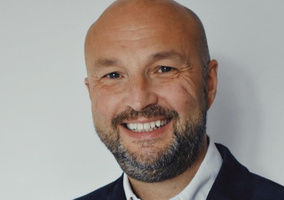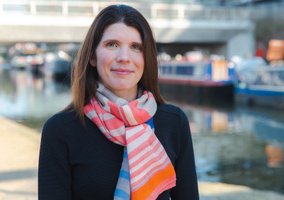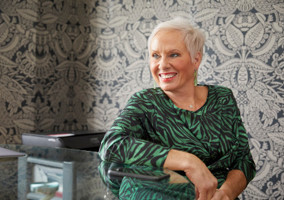At nearly a quarter of a century old, GamCare is looking at how to reach more people affected by gambling problems.
However, the charity, which runs the 24-hour National Gambling Helpline and provides a range of support for people affected by problem gambling, also faces “buckets of challenges”, chief executive Anna Hemmings says.
These challenges, including lack of awareness and increasing financial pressures, “all converge to create quite a complex picture for us at the moment”, Hemmings says.
Her solution is a greater focus on improving digital services and a more collaborative approach.
‘Perfect storm for gambling issues’
External pressures, such as the effects of the pandemic, cost-of-living crisis and concerns that interest rates will rise “could create a perfect storm for gambling issues”, Hemmings says.
She explains: “Unfortunately, at times we can look to [gambling] as a way to resolve financial issues, which obviously it's not. But risky behaviours tend to increase when society is in difficult moments.”
Hemmings also wants to do more to raise awareness about gambling issues.
“One of the biggest challenges for us is around people just not understanding the risks associated with gambling,” she says. “Gambling harms are not well known. It's an activity that can be very secretive on phones or mobile devices.”
This lack of awareness means people may not spot the signs in loved ones, and addicts themselves may not seek help until it is too late or in most cases not at all.
Indeed, Hemmings says: “We know that only around 3% of people with gambling problems come forward for treatment. And that's low compared to other addictions.”
Increasing capacity means more money is needed
In the financial year ending March 2021, GamCare’s total income was £13m, which is more than double what it was five years’ ago.
Around 40,000 people a year get support via the helpline. However, to further increase capacity and reach more people, more funding is needed. But it this also needs to be sustainable.
The Gambling Act has been the subject a review since 2020, which could have significant implications for how the sector is funded. The government is expected to publish a white paper setting out its plans next month.
Currently gambling companies make a voluntary contribution to GambleAware, which then distributes funds to charities such as GamCare to provide support for people. But the review of the act could lead to the introduction of a levy in place of the voluntary system.
Hemmings says that this level of uncertainty makes it difficult for GamCare to plan for the future.
“We need more funding to transform our services,” she says. “But until some of these legislative issues are resolved, we will struggle to achieve that.”
Funding mix
Around 60% of GamCare’s income comes via GambleAware, but the charity is also looking to other sources.
“We're very much looking at funding mix,” Hemmings says.
“Gambling isn't particularly on the radar of lots of funders, and that might be both an opportunity and a challenge in some respects.”
The charity is currently exploring how it might work with larger trusts and corporates.
However, she emphasises that “there is public support for the idea that the gambling industry does make that contribution”.
‘Online will be the first port of call’
The pandemic accelerated a shift towards more gambling online.
Hemmings expects this to be a permanent shift. It will also change how people look for support.
“As a result of the pandemic, people will look more online as a first port of call for help,” she says.
“So having really good resources available online, which segue into in-person support where needed, is really, really important for us.”
GamCare has had a live-chat version of its helpline on its website for some time, but “saw an increase in people using live chat rather than voice calls to contact us”.
Another reason for the increase in demand for the live-chat service is that younger people “tend to prefer a text-based interface” and “don’t t necessarily want to pick up the phone and talk to someone”.
Early intervention
GamCare also wants to improve its digital services so it can reach people earlier, and in a way that they are comfortable with.
“We tend to find that people come forward when they've already experienced quite a lot of gambling harm,” she says.
Gambling problems can affect people’s financial security, mental health and relationships with others.
“We really want to reach people at an earlier stage,” she says. “To do that, we're doing a piece of digital transformation.”
GamCare already has plenty of online services such as its live-chat function, “but we're looking to pull them together into a more intuitive interface”.
The next step will be to “add an element of personalisation, so that people can get to the information they need quicker and more effectively on our website”.
‘Meeting the full range of needs’
GamCare’s recent campaign, Talk Ban Stop, was about “layering tools and support” for people, by getting them to combine blocking access to gambling sites with getting help.
This is the direction the charity wants to continue moving in.
“We want to have more holistic support available and be able to offer people a little bit more in the way of money advice,” Hemmings adds.
Cryptocurrency trading is an area that GamCare is exploring as there are parallels with gambling in some of the behaviour associated with investing in volatile and less regulated spaces.
While it’s “not technically gambling”, Hemmings says “the impacts can be the same”.
Taking on a modern leadership role
Looking ahead, collaboration is something Hemmings is optimistic about.
“We work really well with other organisations across the sector,” she says.
During the pandemic “everybody was a bit more introspective”, but GamCare was still able to develop partnerships around blocking software, as well as with banks and debt agencies.
“We'd like to think we're sort of natural collaborators,” she says.
Looking across the sector, Hemmings thinks it is “a good time to galvanise” and look at how to meet increasing demand.
“In terms of physical and mental health, the NHS and the charitable sector are straining to meet demand,” she said. “Through working together, we can have interesting debates about the kind of crossovers in our work.
“Also, we can ensure that people get the help that they need, at the time that they need it.”
This might mean directing people to services provided by other charities or the NHS.
“We're interested in taking a leadership role in our space,” she adds. “We have got lots of experience of gambling harms, where we see a large proportion of people who seek support in this country, and we're really keen to not only share the expertise that we've developed over the years, but also listen to others about what the right next steps are.”
Related articles












